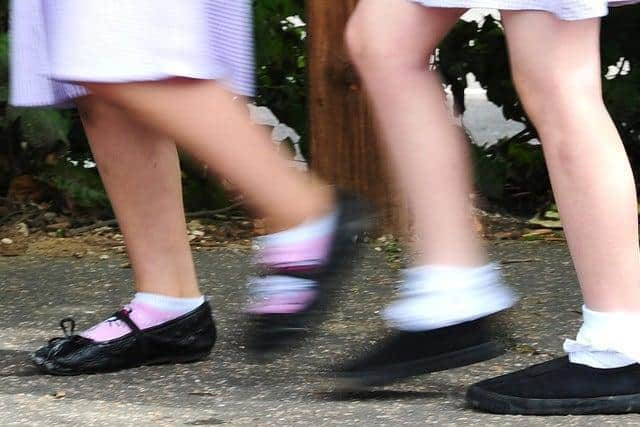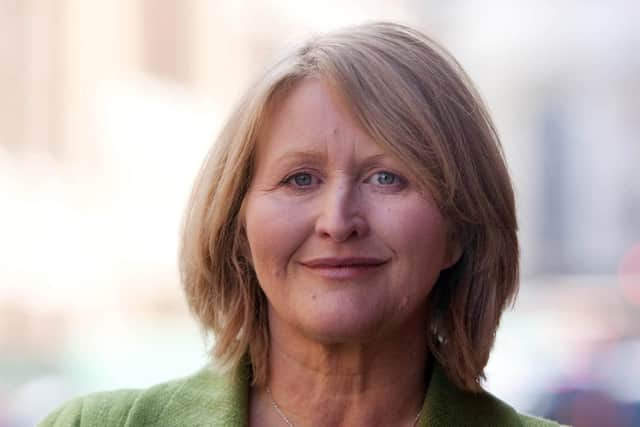Home lessons gap between rich and poor, according to new research
This article contains affiliate links. We may earn a small commission on items purchased through this article, but that does not affect our editorial judgement.
Children from better-off households are spending an additional 75 minutes a day on educational activities than their peers from the poorest households during the lockdown, research has found.
Pupils from the wealthiest families will have done seven full school days’ worth of extra home learning by June 1, when more pupils could return to school, according to an Institute for Fiscal Studies (IFS) report.
Advertisement
Hide AdAdvertisement
Hide AdIf children do not go back to school until September, the gap between the most affluent and the poorest pupils will double to three school weeks, the study warns.


Join our new coronavirus Facebook group for the latest confirmed news and advice as soon as we get itFewer than half of parents said they would be willing to send their children back to school if they had the choice, but the higher-income families are more keen for a return to school than lower-income families.
The report from the IFS warns: “This risks a situation where the children struggling the most to cope with home learning remain at home while their better-off classmates are back in the classroom.”
The findings come after Ministers and teaching unions were told to “stop squabbling” and agree on a plan for a phased re-opening of primary schools from June 1.
Advertisement
Hide AdAdvertisement
Hide AdAnne Longfield, the Yorkshire-based children’s commissioner for England, said many children were struggling away from the classroom, and the lack of education would have an impact on their future life chances.


Alison Andrew, senior research economist at IFS and co-author of the report, said: “This risks leaving the children least able to cope with home learning remaining at home, even as their better-off classmates return to school.”
The news came as Chancellor of the Duchy of Lancaster Michael Gove issued a fresh appeal to teaching unions and to councils who have expressed concerns about the Government’s plans to begin reopening schools from next month to think again.
“The clear scientific and clinical advice is that it is safe to have schools reopen accompanied with social distancing,” he said.
“Children only have one chance at education.”
Advertisement
Hide AdAdvertisement
Hide AdMeanwhile, the Association of School and College Leaders said it would be advising schools to begin reopening from June 1.
General secretary Geoff Barton said the body had been “reassured” by talks with Government scientific advisers.
However, he cautioned some schools may need more time to put preparations in place. A Department for Education spokeswoman said: “We will do whatever we can to make sure no child, whatever their background, falls behind as a result of coronavirus.”
The Prime Minister was warned he may cause a fracturing of national unity if he fails to listen to regional concerns about the easing of lockdown restrictions. Greater Manchester Mayor Andy Burnham spoke out as a poll reported public support for the Government’s handling of the Covid-19 crisis had slipped.
Advertisement
Hide AdAdvertisement
Hide AdMr Burnham said the Prime Minister did not inform civic leaders of his easing of restrictions in advance and said the dropping of the Stay at Home message felt “premature”.
The scale of the damage caused by the lockdown was revealed in two reports. Almost a third of young people believe their career prospects have been damaged, the survey by the Prince’s Trust said. And one in five workers fear losing their job within the next six months, a study by the Centre for Labour and Social Studies found.
The Department of Health said 34,636 people had died in hospitals, care homes and the community after testing positive for the virus by 5pm on Saturday, up by 170 from the day before – the lowest daily toll since lockdown began.
________________________________
Editor’s note: first and foremost - and rarely have I written down these words with more sincerity - I hope this finds you well.
Advertisement
Hide AdAdvertisement
Hide AdAlmost certainly you are here because you value the quality and the integrity of the journalism produced by The Yorkshire Post’s journalists - almost all of which live alongside you in Yorkshire, spending the wages they earn with Yorkshire businesses - who last year took this title to the industry watchdog’s Most Trusted Newspaper in Britain accolade.
And that is why I must make an urgent request of you: as advertising revenue declines, your support becomes evermore crucial to the maintenance of the journalistic standards expected of The Yorkshire Post. If you can, safely, please buy a paper or take up a subscription. We want to continue to make you proud of Yorkshire’s National Newspaper but we are going to need your help.
Postal subscription copies can be ordered by calling 0330 4030066 or by emailing [email protected]. Vouchers, to be exchanged at retail sales outlets - our newsagents need you, too - can be subscribed to by contacting subscriptions on 0330 1235950 or by visiting www.localsubsplus.co.uk where you should select The Yorkshire Post from the list of titles available.
If you want to help right now, download our tablet app from the App / Play Stores. Every contribution you make helps to provide this county with the best regional journalism in the country.
Sincerely. Thank you.
James Mitchinson